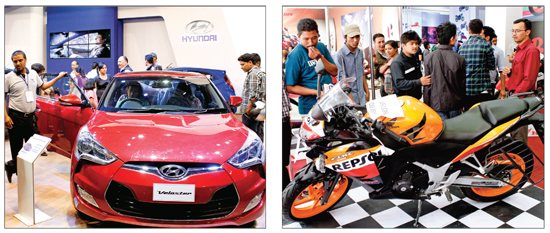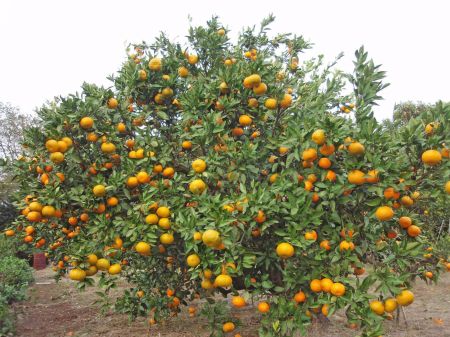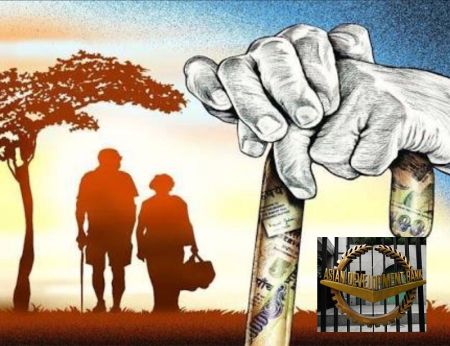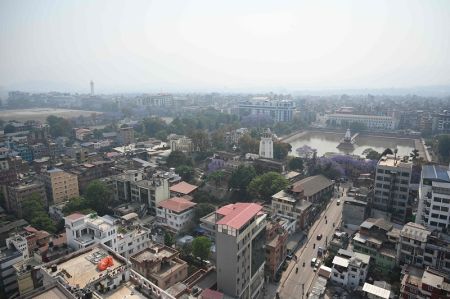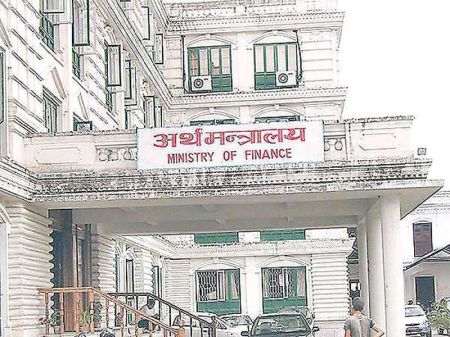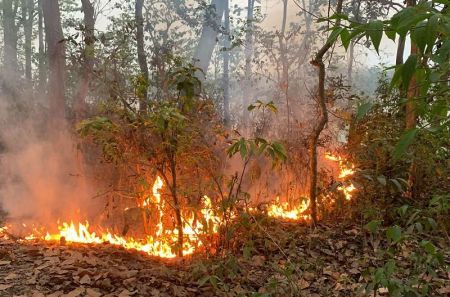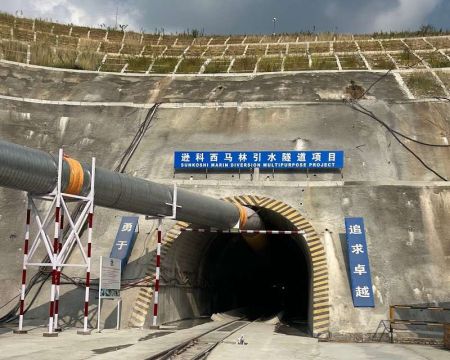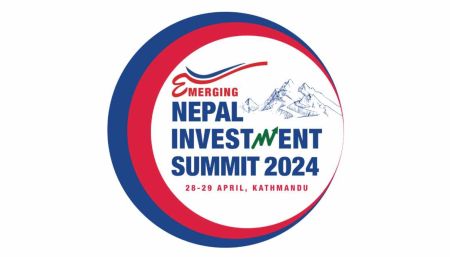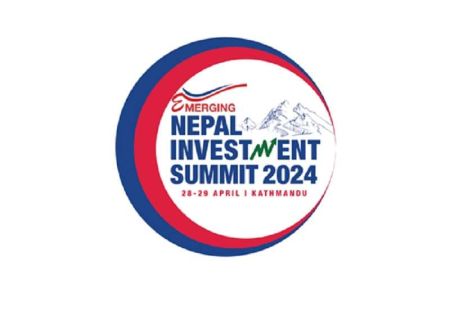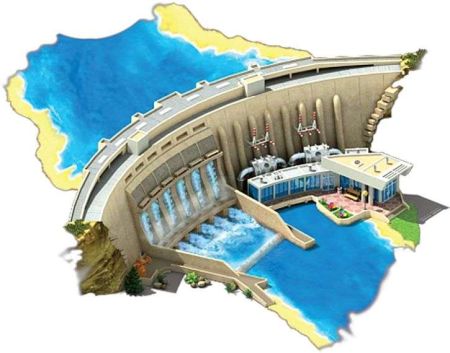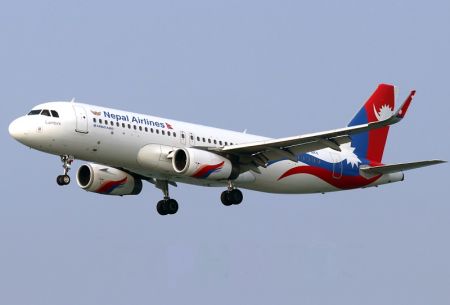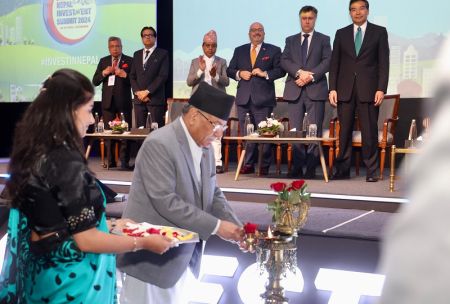--By Suraksha Adhikari
With the expansion of the automobile market in Nepal, the possibilities of employment opportunities have also grown. Along with the gradual development of road and transportation facilities in Nepal, the growing business of automobiles and its spare parts, automotive oils and other products used in automobiles have been able to sustain the commercial growth and promotion of the national economy of Nepal.
Focusing on the booming automobile market that had been on a downward spiral for the past three years, Nepal Automobile Dealers Association (NADA) in association with the Global Exposition and Management Services (GEMS), an event organizing company, organized the ‘NADA Auto Show 2013’ to promote Nepal as a good market for automobile business.
The auto show, which concluded last week, showcased the passenger car, two and four- wheelers, tyres and tubes, components and sub-assembly accessories, off-road vehicles, tractors and farm equipment batteries, environment and safety equipments, air-conditioning, trucks and bus lubricants, auto finance, auto insurance, garage equipment and auto paints.
A total of 69 exhibitors, including local as well as international brands, displayed their products and services in 100 stalls. Automobile companies from Nepal, India, China, Korea, Japan, USA, Germany and Czech Republic, among others participated in the event. The auto show this year had different sections for two-wheelers, four-wheelers and commercial vehicles to cater to the need of segmented as well as general visitors.
Inaugurating the Auto Show 2013, Finance Minister Shanker Prasad Koirala said the fair could help boost the transportation sector, which is considered an essential component for improving an economy. “The government is considering revising the customs duty on the vehicle imports following the commitment at SAFTA and World Trade Organization,” Koirala added. He said that in spite of a lot of possibilities in the automobile industry in Nepal, this sector has not improved as expected and government is ready to support this sector.
“Visitors are seen as attracted by hatchbacks as compared to any other segment of four-wheelers,” said Shekhar Golchha, President of NADA. “The small car segment appeals to many as it is easier to navigate through the narrow and crowded traffic of Kathmandu, not to mention to cope with the dearth of parking space,” he added. Golchha emphasized on the preference of small cars because of jerky roads all over the valley. “These small cars are ideal to drive in the bumpy roads of Kathmandu valley and for those who are buying a car for the first time. New brands of cars are preferred by those who change their cars frequently but the demand of small cars is higher.”
.jpg) The Current Market
The Current Market According to Gopi Krishna Neupane, General Secretary of NADA, the market of automobiles has increased significantly than in the previous fiscal year. “We have almost all international brands in our Nepali market including Nepali products,” Neupane said. “Sales have improved this year though it had significantly dropped in the previous years. Sales of both four-wheelers and two-wheelers had gone down last year.”
According to data provided by the Department for Transport Management, 208,500 units of vehicles were sold in Nepal in the fiscal year 2012/13 which is an increment of 28, 000 units from the previous fiscal year. Only 1, 70, 000 units of vehicles were sold in the fiscal year 2011/12.
Neupane added, “Around 50 national and international companies are present in Nepal and are dealing in automobiles, providing employment to around 1.7 million people.”
Golchha said that the annual transaction of the automobiles in Nepal has crossed over Rs 50 billion, which is encouraging the people working in the industry.
.jpg) Problems and Challenges
Problems and Challenges Transportation has always played an important role in the economic and social development of any state. “But business in Nepal has been directly hindered by the massive customs duty on the import of vehicles,” said Golchha. He also pointed out the increment of 5 per cent excise duty while entrepreneurs try to reduce the customs duty which has pushed this business backwards. He also complained about the high fuel price, the crude manner in which prices of spare parts are fixed at customs offices, and problems created through the open border as major problems facing the country´s automobile sector. “Nepal has been levying 241 percent duty, including excise duty, customs tax and VAT on four-wheelers and 80 percent on two-wheelers. This is the highest imposition of tax on automobiles in the world,” he added.
Other major challenges include transportation hurdles and traffic management. Pradip Pradhan, member of NADA, said that the government’s categorizing automobiles in the luxury segment has hindered the growth of the sector. “Automobiles are essential for the growth of the economy but the government’s negligence towards this sector has been a main factor that has held it back,” Pradhan mentioned.
Future Prospects
The auto dealers in Nepal are focusing towards the expansion of this market. Lately, new brands of automobiles are being introduced to the Nepali market on a weekly basis. Auto dealers are experiencing tough competition in introducing user friendly two and four- wheelers in the market. However, along with the rise of 25 per cent in sales, positive signs are emerging to indicate that the future of automobiles in Nepal is not dark.
According to Neupane, “99.5 per cent of Nepalis do not have access to four-wheelers. With a population of 26.4 million and the number of four-wheel vehicles around 1.5 million, we arrive at the ratio of five families to one vehicle. Based on this data, there are a lot of possibilities for the automobile market in Nepal. “Only the market of Kathmandu valley does not depict the extent of the automobile market here; there are 73 districts in Nepal facilitated by motor ways. This shows that the market is growing outside of the valley too,” he said.
